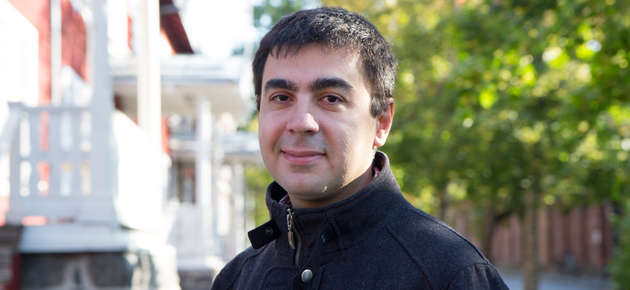Dissertation: Wireless Technologies Solve Problems


The research team in the University of Vaasa has successfully used wireless sensor networks in measuring the sunlight power that heats up the asphalt surface in Vaasa, Finland. The tests were performed in the parking lot near the University of Vaasa covering a period of two years from 2014 to 2015.
“This was a new measurement model. The heat measurement data was collected and transmitted the using wireless devices. If the wireless devices would not be used, we would need to lay hundreds of meters of cables inside and outside the university facilities. It would also be very expensive”, says Cuhac.
In addition to measuring sunlight directly, the research team has also placed sensors under the asphalt surface to discover how much power is absorbed by the earth and how much is reflected back to the atmosphere. According Cuhac, the results clearly showed the percentage of the absorption rates in different seasons.
Also the temperature changes under deep layers of soil were monitored to complement the achieved results.
“These results have been very important for University of Vaasa research group for assessing possibilities of energy planning in future. According to the findings, in future, it would be worth to harvest the solar energy and store it under the ground in form of heat, then reuse it, for example to melt the ice in certain locations”, says Cuhac.
Detecting faults and locating people
The dissertation also covers another research case where the wireless sensors were used to detect problems in agricultural machines which are used for planting the seeds to the soil. The developed system accurately measured the seed flow rates and detected the faults. The company could therefore assess the advantages and drawbacks of the system for their future products.
Additionally, wireless sensors have been used for detecting the humans located inside the buildings for military purposes. Cameras were also used on those wireless devices for capturing photographs, but wireless signals provided a much simpler and more powerful solution because electromagnetic signals can penetrate through walls.
Measuring real life data is rewarding
In the dissertation research cases, measurements from real life applications were used instead of simulated data. Simulations are perfect for studying and development, but capturing the data from the source is more difficult and usually contains unexpected factors, causing errors due to unforeseen conditions.
“Working on measurements was challenging, but was always one step closer to the solution”, says Cuhac.
Future will be more wireless
“Nowadays wireless devices play an important role in our daily lives. In future they will be used even more. Due to their small size and ease of installation, many engineers nowadays rely on wireless technologies”, says Cuhac.
Cuhac believes that in future wireless devices will be more efficient in energy usage.
“There will be more devices but less charging efforts. Laser based charging technologies have already been existing for military use, for example charging drones while airborne. Eventually they will become safer and more popular in commercial products. In near future I also expect that we will see more solar powered devices”, he says.
Public Defence
The public examination of M.Sc. (Tech.) Caner Cuhac’s doctoral dissertation ” Wireless Sensor Network Applications in Military, Agricultural and Energy Research” will be held on Monday 11 November 2019 at 12 o’clock in auditorium Nissi. The field of dissertation is Telecommunication Engineering. Dr. Ali Hazmi (Huawei Oy Finland) will act as an opponent and professor Mohammed Elmusrati as a custos.
Further information
Caner Çuhac, tel. +358 41 7006262, canercuhac(at)gmail.com
Çuhac, Caner (2019) Wireless Sensor Network Applications in Military, Agricultural and Energy Research. Acta Wasaensia 431. Doctoral dissertation. University of Vaasa. Vaasan yliopisto.
Publication pdf: http://urn.fi/URN:ISBN:978-952-476-883-2
Caner Çuhac was born in 1986 in Tekirdağ, Turkey. He has a Bachelor’s degree in Telecommunications from Yildiz Technical University, Turkey and a Master’s degree in Telecommunications from the University of Vaasa. He has worked as researcher at the University of Vaasa for eight years.